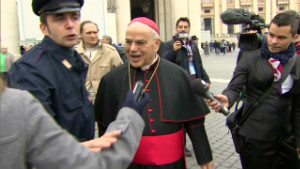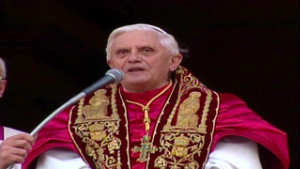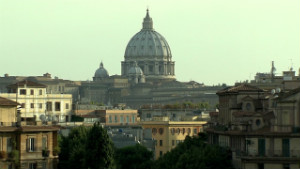 Vatican muzzles U.S. cardinals
Vatican muzzles U.S. cardinals
 2005: Pope Benedict's first speech
2005: Pope Benedict's first speech
 American nuns' outlook on next pope
American nuns' outlook on next pope
In fact, very early on in
his papacy it became evident that Benedict lacked the vitality required
to lead a scandal ridden church. He also did not have the necessary
distance from the church's mismanagement to be a credible voice for
change.
In our CEO succession
work, we find that organizations often assume that the COO or even the
CFO, by virtue of their knowledge of the business and their familiarity
to the board, are best positioned to take on the top role.
In making this judgment,
they may not be including in their calculus some essential qualities
that can make all of the difference between a smooth and successful
transition and a short-lived, rocky tenure that leaves the organization
drifting and directionless.
Either way, there is no
mistaking the critical importance of the leader at the helm. A case in
point is Jeff Bezos of Amazon. When he came on board, Amazon was
struggling with a business model that wasn't working and a clientele
that was flocking to new websites and product lines. His leadership,
vision and commitment to innovation has energized his company and
brought new life to an old brand.
The Church is at the
brink of its own transition at the top that could have an enormous
impact on its future vitality and direction. It represents a moment
filled with opportunity and fraught with challenge. In that light, here
are some of the questions that the last conclave should have considered
and must be on their agenda this time around:
• What kind of strategic
thinking ability has this leader demonstrated that suggest he will be
able to pull together and communicate a compelling and unifying vision
for the Church's future?
• Has this leader
demonstrated an ability to effectively govern a large and complex
bureaucracy? Is he a good judge of talent and willing to delegate
critical management roles to the right people?
• Is this leader an
extraordinary communicator, willing and able to utilize the electronic
and social media to reach out to people across cultures and generations?
• Has this leader
developed strong relationships outside of the Church with other leaders,
both religious and secular, that can be leveraged to break down
barriers and forge new and dynamic partnerships?
• How courageous and
forceful will this leader be to push for changes that will cultivate
broader ownership and participation in decision making among all
members?
• Is this person seen as
a leader of unfailing integrity who has not in the past and will not in
the future succumb to the temptation to compromise core values?
These are the kinds of
questions that the current College of Cardinals will hopefully be
considering as they gather in Rome this month. They're similar to
questions many corporations, confronted with compelling challenges and a
need for new direction,have faced as they sought to consider who should
fill their top role.
The papal conclave
represents a great opportunity for the Church to demonstrate that it's
learned some important lessons from the recent past. They can draw from
the experiences of other global corporations around them to see that
avoiding faulty assumptions and asking the right questions can prevent
their having to schedule another conclave in the near future.

ไม่มีความคิดเห็น:
แสดงความคิดเห็น